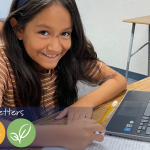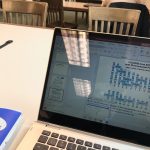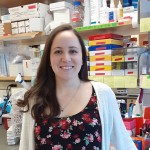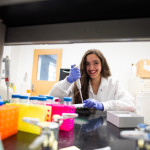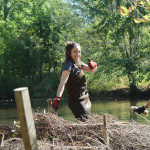Welcome to our first Scientist Spotlight feature! Today, we’re focusing on Lauren Shields, who recently earned her PhD in Biomedical Sciences from the University of California, San Francisco. She has been an LPS pen pal for 5 years (wow!).
When and why did you decide to become a scientist? Why did you decide on your particular field?
Both my parents are scientists – so I was exposed at a young age to the field and decided early on I wanted to be a scientist. Of course, actually taking science courses in high school and then college helped reinforce this path. I decided to work in biomedical sciences because I wanted my research to focus on helping to solve one of the diseases that plague humans. In particular, I researched Alzheimer’s disease as a graduate student – in large part because my grandmother passed away from the disease a few years ago.
What was your favorite part about science when you were in middle school or high school? How did that carry forward to the work you do now?
I loved understanding the interesting complexities of how biology works, and in particular, how the human body works. Carrying that forward to my career as a scientist, during my research, I not only work to understand how biology works, but even more excitingly discover how new things work that we didn’t know before.
What does your day-to-day life as a scientist entail?
I think something that’s important to understand about a scientist’s daily life – it’s not about just memorizing facts, it’s about making discoveries (no matter what field of science you’re in). For biology/neuroscience (my fields), this involves being in a laboratory doing experiments – for example, using a microscope to image live brain cells as they fire. So my time is generally split between doing experiments, reading literature about other people’s work, and writing/presenting to communicate my own science.
Why did you decide to participate in LPS?
I wanted to reach out to young students who might be interested in science, but didn’t really know what a career in science might look like. I keep coming back because the questions and insights that come from the students always astound me, and make for great pen-pal conversations!
Editor’s note: If you are a pen pal in Letters to a Pre-Scientist this year and are interested in being highlighted in a future Scientist Spotlight, let us know!


